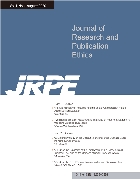- 권한신청
- E-ISSN2733-7146
- KCI Candidate
Ethical Conducts in Qualitative Research Methodology :Participant Observation and Interview Process
HWANG, Hee-Joong (Department of International Trade, Korea National Open University)
Abstract
Purpose: Ethical behaviors become more salient when researchers utilize face-to-face interviews and observation with vulnerable groups or communities, which may be unable to express their emotions during the sessions. The present research aims to investigate ethical behaviors while conducting research have resonance due to the deep nature of observation and interview data collection methods. Research design, data and methodology: The present research obtained non-numeric (Textual) data based on prior literature review to investigate Ethical Conducts in Qualitative Research. Non-numeric data differs from numeric data in how the data is collected, analyzed and presented. It is important to formulate written questions and adopt them what the method claims for the researcher to understand the studied phenomenon. Results: Our findings show that while conducting qualitative research, researchers must adhere to the following ethical conducts; upholding informed consent, confidentiality and privacy, adhering to beneficence's principle, practicing honesty and integrity. Each ethical conduct is discoursed in detail to realize more information on how it impacts the researcher and research participants. Conclusions: The current authors concludes that five ethical conducts are important for realizing extensive and rich information during qualitative research and may be exploited in implementing research policies for researchers utilizing observation and interviews methods of data collection.
- keywords
- Ethical Conducts, Qualitative Research, Research Ethics
- 다운로드 수
- 조회수
- 0KCI 피인용수
- 0WOS 피인용수














